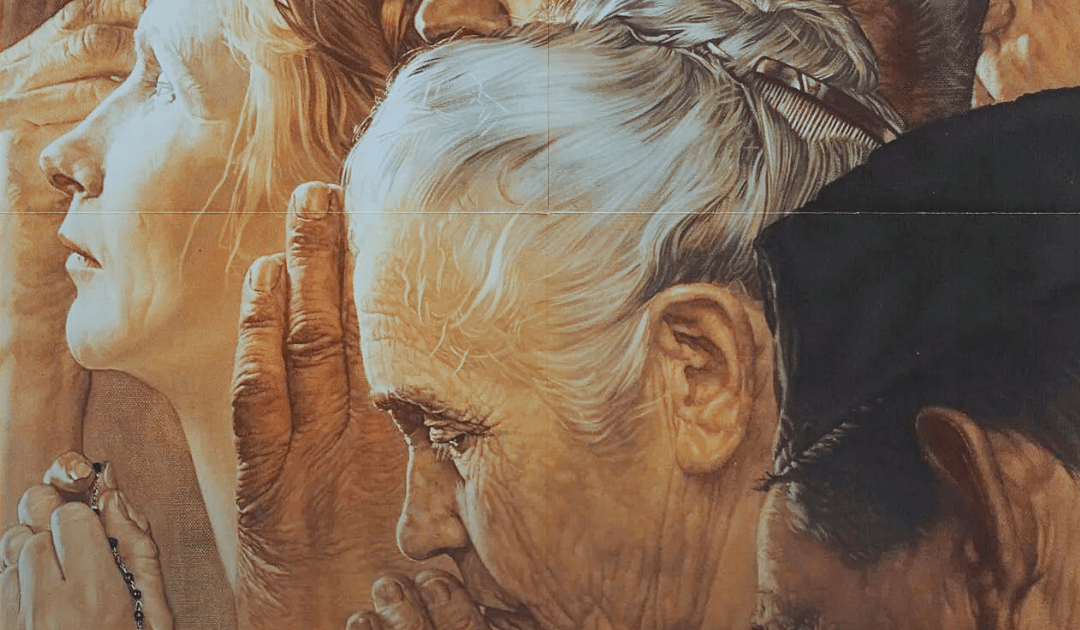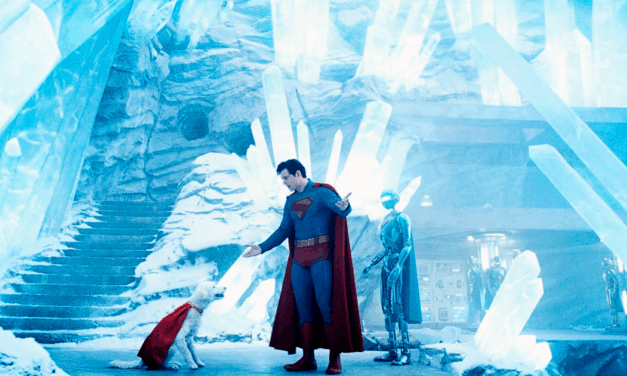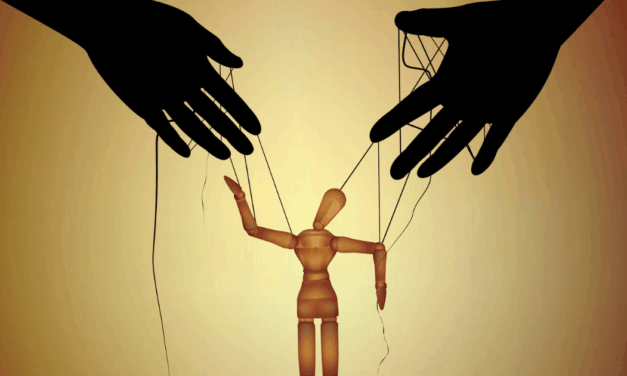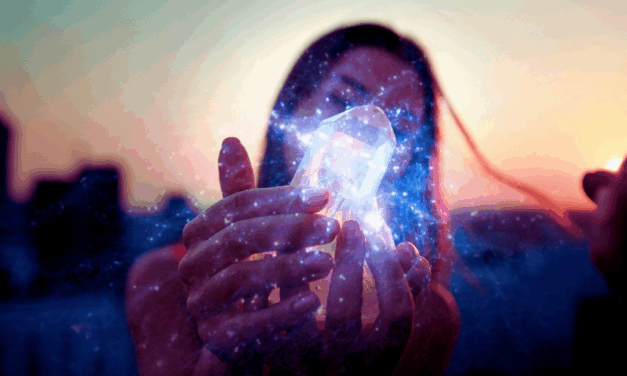Please also see the related Hank Unplugged Podcast, “Does the West Need a Religious Revival? with David Hanegraaff“
This article was published exclusively online in the Christian Research Journal, volume 48, number 01 (2025).
When you support the Journal, you join the team and help provide the resources at equip.org that minister to people worldwide. These resources include our ever-growing database of more than 2,000 articles, as well as our free Postmodern Realities podcast.
Another way you can support our online articles is by leaving us a tip. A tip is just a small amount, like $3, $5, or $10, which is the cost of a latte, lunch out, or coffee drink. To leave a tip, click here
The question, “Does the West need a religious revival?” was the subject of a debate hosted by The Free Press on February 27, 2025, in Austin, Texas, that pitted two religious advocates against two avowed atheists in search of an answer.1 This is an important question, so I flew to Austin to put my finger on the pulse and provide my perspective of the debate on behalf of the Christian Research Institute. While the sides obviously disagreed about the need for religious revival, the assumption begging the question was their universal agreement that all is not well with the world. Paul Harvey famously said, “In times like these it helps to recall that there have always been times like these.” Yet when social erosion has so deeply unsettled both sides of the spectrum, it’s worth considering whether we should stay the course or seek a correction. The scene of current affairs in the West was set by The Free Press as follows:
The West has experienced a rapid erosion of our shared culture. Political polarization, loneliness, depression, and addiction have surged, while marriage and birth rates have plummeted. There’s a crisis of meaning, and a growing chorus of intellectuals are pointing to secularism as the cause.
Studies show that religious service attendance correlates with lower rates of depression, suicide, and substance abuse. Religious individuals are also more likely to marry, stay married, and have children. For the first time in U.S. history, church membership among Americans has fallen below 50%. Less than a fifth of Western Europeans attend church regularly. In Sweden, over 75% of young people claim no religion at all.
So, is the decline of religion to blame for our social unraveling? Or are rapid technological change, growing economic inequality, and other social disruptions the culprit? And would empowering religious institutions, which have historically abused their power to stifle scientific progress, fuel wars, and discriminate against perceived enemies, be a mistake?
In short, would a return to faith restore order, or simply revive old divisions?2
Christians — and really any honest observer — should take issue with some of the assumptions made at the outset, blaming religion in toto for stifling scientific progress and fueling war and discrimination. The religious advocates — New York Times opinion columnist and practicing Catholic Ross Douthat and the former-atheist-turned-Christian Ayaan Hirsi Ali — fundamentally disagreed with this designation, while their atheistic opponents — founding publisher of Skeptic magazine Michael Shermer and comedian Adam Carolla — used these presumptions as the basis for their arguments against the need for religion. But the truth matters, and a thorough examination of history objectively negates the assumption that religious belief has been a net negative for society throughout the centuries. Although he didn’t have time for a thorough refutation during the debate, it is worth noting that Douthat extensively covers this in his new book Believe: Why Everyone Should Be Religious (Zondervan, 2025).
The cohort of atheists leaned heavily on the same tired, old arguments such as Christians being advocates for slavery, despite Christians being behind the eventual abolition of slavery. Douthat does well to point out that issues such as slavery are universal and not unique to Christians and Christian societies but an evil experienced by humans throughout time and place; and yet it was the Christian ethic of human dignity and equality that eventually led to the emancipation of slaves, the general abandonment of slavery in the Western world, and the subsequent civil rights movement. Thus, slavery serves as an argument for the benefits of religion — specifically Judeo-Christianity. However, to make that formidable argument, one must hold an allegiance to intellectual honesty in the face of inconvenient truths. Unfortunately, the atheistic advocates overwhelmingly relied — and rely — on presumptions of human nature pregnant with the very human purpose-based perspective they are prejudiced against. While they repeatedly proclaimed that their atheism is not a worldview, Hirsi Ali astutely admonished them, calling them non-practicing Christians. Famed atheist Richard Dawkins recently made headlines for this very reason, claiming to be a cultural Christian in an admission that Christianity is the optimal operating system of the West, and when it recedes, we witness our social fabric unravel.3 This would later be the closing argument for Hirsi Ali.
Most glaring in this respect was the lack of awareness on the part of atheists Carolla and Shermer who are blissfully ignorant of the blessings bestowed upon them by existing within the confines of a West built on the foundation of Judea-Christian principles. Hirsi Ali, who grew up in an oppressive Islamic context and fled her native Somalia for the Netherlands to escape a forced marriage, subtly yet confidently called out her atheistic opponents for their inherent assumptions about human nature, again calling them “Non-Practicing Christians” that enjoy the benefits of living in the Judeo-Christian West. Societies built on hardcore atheism — oppressive communist regimes such as the former USSR, North Korea, China, Cuba, and others — are not exactly places that either one would willingly migrate to in order to live out their claimed atheism in practice. Hirsi Ali argued that one need only juxtapose societies — historical and present — whose operating systems have been based on Judeo-Christian principles with those based on atheism and judge for oneself. Her argument connects the rise of secularism to the subsequent social unraveling that has led to a rise in despair, breakdowns of the family, and the overall degradation of culture and society. Worldviews matter — and despite what atheists would like to believe, there is no such thing as a neutral worldview.
This is Douthat’s fundamental assertion: that it all boils down to one question — What came first, mind or matter? In short, one must give a convincing account for consciousness, and atheists and materialists alike must give a “rational response to reality.” Douthat reminds his ideological opponents that the mere claim that one exists is already a supernatural claim. The question of consciousness simply cannot be ignored.
Adam Carolla largely based his argumentation for atheism on his gut. This serves as a perfect summation for so many in society today, who deny the existence of God, yet live off the oxygen that a Christian worldview supplies through the concepts of human rights, dignity, and personal and social responsibility. He and his debate partner consistently — almost comically, which is ironic given that Carolla is a comedian who was not trying to be funny through his line of reasoning in this context — cited the belief that society is suffering because human beings are not living in accordance with the way that they were made to live. Unforced error when debating the merits of atheism aside, our everyday language is littered with underlying assumptions that undercut our professed understanding of reality. Reality remains committed to our existence despite our best efforts to detach ourselves from it.
While I am thrilled that this conversation took place in a packed auditorium, witnessing these culture shifters shape the case for religious revival, my greatest takeaway was that although the debate promised to be a serious conversation about a serious — arguably the most serious — subject we encounter in our human experience, it fell prey to one of the predominant problems of our historical period: the inability to deny our desire to be entertained at every given moment. We “amuse ourselves to death” (Neil Postman)4 in lieu of entertaining the most important question we can ask ourselves about our lives and our place in the cosmos — Why are we here? Unfortunately, we exist in an age when most people are simply not forced to show their work when formulating so many self-stultifying, syncretistic worldviews, and we suffer the personal and cultural consequences of an underexamined — or outright unexamined — life.
I sensed a discouragement in the tenor of Hirsi Ali to this end. She frequently sought to align herself with a fidelity to the factual in an honest attempt to assess and ascertain the truth. Such an assessment, after all, is what led her to leave atheism to proclaim the truth of Christianity. This conversion was not based solely on emotion or non-rational feelings, but one that examined the fruits of Christian societies around the world and throughout history and contended that one cannot love the West without likewise loving the God whose image it was fashioned after — Jesus Christ.5
This is where Hirsi Ali and her debate partner Douthat disagreed. Douthat makes the claim that a religious revival of any kind is optimal in opposition to the current climate of post-Christian secularism — the argument that belief in any of the major world religions is better than no belief at all, which serves as the hypothesis for his latest book, Believe. Hirsi Ali was visibly uncomfortable with the premise of that argument, a discomfort understandable to anyone familiar with the story of her life and the persecution she experienced at the hands of radical Islamic beliefs and believers. To be fair, Douthat is unapologetic in his contention that Christianity offers the ultimate truth for our lives, however this does not go far enough for Hirsi Ali who demanded a high degree of specificity of belief — as we all well know that the devil is in the details. Hirsi Ali is not satisfied with a simple call for religious revival, but a religious revival that is specifically and unapologetically Christian.
Hirsi Ali, in a moment of vulnerability, admitted that when she was an atheist, she had a God-shaped hole in her heart, and despite the claims by some that her conversion was high on utility and low on emotion,6 she became emotional when stating that the God-shaped hole she felt as an atheist has been filled by Jesus Christ. The post-Enlightenment period of history has left a God-shaped hole in the hearts of those individuals and societies who deny the existence of God in favor of human reason. What these atheists fail to provide is a satisfying explanation for the formulation of society’s foundational moral and ethical principles in the absence of a coherent worldview imbued with meaning. Douthat rightly reminds his opponents that “despair is the endpoint of a meaningless universe,” which explains the pit of despair that so much of the Western world is experiencing as the sun sets at the dusk of belief in deity.
But do not despair! That so many gathered to witness a discussion about the merits of religion at all is important. The parting question was “Does the West need a religious revival or a revival of reason?” An astute observer of the question will understand the false dichotomy present within it — the trope pitting science against faith, as though they are somehow in conflict when they are increasingly observed to be in concert. A fine-tuned cosmos undeniably calls for a Creator. Douthat closed the night by stating that his favorite biblical character was “doubting Thomas,” who denied Christ’s Resurrection until he saw for himself the wounds of the One who healed humanity’s divide with divinity (John 20:24–29). Douthat demonstrates his faith to be one founded on historical fact and reason and contends that an honest reading of the cosmos delivers more evidence to satisfy the Doubting Thomases among us than they would like to believe — that biblical faith isn’t blind, but a well-reasoned response to reality.
This debate is another example of the concept that Justin Brierly calls “the surprising rebirth of belief in God,” highlighting the growing number of public intellectuals who are no longer afraid to express their reservations about the Enlightenment era assumptions of atheism and materialism and are increasingly emboldened to advocate for religious belief — often Christian belief.7 I’m not sure that the debate could have benefited more greatly from a panelist than it did from Ayaan Hirsi Ali. After all, who better than Hirsi Ali to critique the emptiness of atheism and the fullness found when we align our identities with a faith that is in concert with how we were made to live.
The debate ended the way it began — with relative unanimity. Both sides lamented the role that technology and the atomization of individuals from each other and nature has played in the problems that everyone had gathered to discuss. The atheistic panelists were both particularly adamant — especially Carolla — about the importance of disconnecting from technology and spending time outside and moving our bodies. I couldn’t help but think of the phrase made famous by the Scottish Olympic Sprinter Eric Liddell who was immortalized in the 1981 film Chariots of Fire: “I believe that God made me for a purpose.…He also made me fast. And when I run, I feel His pleasure.”8 When we fulfill our purpose in life — the way we were made to live — we feel His pleasure. Like Thomas experiencing an appearance of the resurrected Christ, our doubts are diminished and our place in the cosmos is confirmed when the goodness of creation is experienced and understood as divine by those with eyes to see.
British historian Arnold Toynbee argued that most civilizations die from suicide.9 The post-enlightenment secularists embraced a world in which Friedrich Nietzsche, one of the preeminent secular high priests, proclaimed that “God is dead. God remains dead. And we have killed him.”10 However, while the truth is that God is not dead, and we did not kill Him, the belief in the “death of God” has cut our civilization off from its life source and has led to a slow and steady death at our own hands through our allegiance to this self-destructive ideology — we are committing civilizational suicide.
But the West is not dead yet — perhaps in critical condition, but not dead. In contrast, if the abandonment of religion and the secular embrace of the death of God are indeed emblematic of our collective decline, then a recent Pew Research Center study — released the day of the debate showing that “after many years of steady decline, the share of Americans who identify as Christians shows signs of leveling off”11 — is evidence that there is still room for religion in the hearts and minds of so many among us.
Anecdote is not evidential, but it’s not nothing. Lapsed fire and brimstone Baptists. Atheist punks covered in tattoos. A Muslim turned Yogi. This is just a sampling of the people — mostly young — who are embracing historical Christianity and turning to the church that I am personally a member of — one that is bursting at the seams with young people who are tired of a world based on their own understanding and are embracing the freedom found in the self-restraining love of the Church. These people have joined the Church and are getting married and having children — many children. This is what I am personally bearing witness to and many churches around the United States are reporting similar signs of growth.
Does the West need a religious revival? Whether it needs one or not, it is possible that one is already in our midst.
NOTES
- The debate is available on YouTube: “Full Debate: Does the West Need a Religious Revival?” The Free Press, March 14, 2025, YouTube, 1:26:06, https://www.youtube.com/watch?v=JG32pQrsQ5U.
- Event Program: “The Freedom Debates: Does the West Need a Religious Revival?,” The Free Press, February 27, 2025, The Paramount Theatre, Austin, Texas.
- See Richard Dawkins’s interview with Rachel Johnson, LBC post on X, March 31, 2024, https://x.com/LBC/status/1774510715975368778?.
- Neil Postman, Amusing Ourselves to Death: Public Discourse in the Age of Show Business (Viking, 1985).
- Ayaan Hirsi Ali, “Why I Am Now a Christian: Atheism Can’t Equip Us for Civilisational War,” Unherd, November 11, 2023, https://unherd.com/2023/11/why-i-am-now-a-christian/. Cf. Ross Douthat, “Where Does Religion Come From?” The New York Times, November 15, 2023, https://www.nytimes.com/2023/11/15/opinion/religion-christianity-belief.html.
- Shadi Hamid writes of Hirsi Ali’s conversion: “There’s not the slightest sign of sincere belief. It’s completely instrumental.” Post on X, November 15, 2023, https://x.com/shadihamid/status/1724892309861613578.
- See Justin Brierley, The Surprising Rebirth of Belief in God: Why New Atheism Grew Old and Secular Thinkers Are Considering Christianity Again (Tyndale Elevate, 2024).
- Chariots of Fire, directed by Hugh Hudson, written by Colin Welland (20th Century-Fox and Warner Bros, 1981).
- See Arnold J. Toynbee, A Study of History: Abridgement of Volumes I to VI, ed. D. C. Somervell (Oxford University Press, 1946), 273.
- Friedrich Nietzsche, “The Madman,” in The Gay Science, bk. IV, sect. 125, trans. Walter Kaufmann (Vintage, 1974), 181.
- Gregory A. Smith, Alan Cooperman, Becka A. Alper, et al., “Decline of Christianity in the U.S. Has Slowed, May Have Leveled Off,” Pew Research Center, February 26, 2025, https://www.pewresearch.org/religion/2025/02/26/decline-of-christianity-in-the-us-has-slowed-may-have-leveled-off/.









